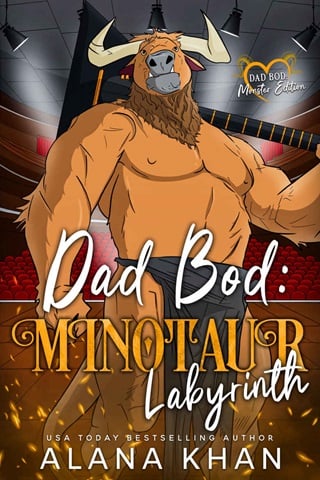Chapter Fifteen
Alfie
The sights and sounds assault me as we continue deeper into the Zone. My nose wrinkles at the stench of garbage piled high on the overflowing dumpsters. At first, I wonder why these people don’t do better, then realize that garbage pickup is a governmental duty.
I’m sure the Others would love to have their garbage removed in a more timely, less revolting fashion. But, like so many things in the Zone, they must rely on governmental officials who may or may not do the right thing.
Purist protesters are still shouting angrily from behind the fence, their words nearly drowned out by wailing sirens and shouts in the distance. This is nothing like the rolling green hills of my place back in Georgia, where the loudest sound I hear is the symphony of crickets chirping as the sun sets.
My grip tightens on Stephanie’s arm as she stumbles on the uneven pavement. Her eyes are wide as she takes in our surroundings. I want to whisk her away from here, keep her safe from the dangers threatening from outside the gates. But she meets my concerned gaze and gives me a reassuring smile.
“It’s not the palace of Ysaria,” I say by way of apology.
“This is better, Alfie. It’s as close as I’ll ever get to your homeland.”
Pow. That hit me right in the chest. She understands perfectly what this trip means to me. All the women I’ve been with, and I’ve never felt so truly seen before.
We follow Bechtel deeper into the tenth circle of hell, as I’ve come to think of the Zone. Yet as we walk, the people greet us with kindness. Their clothes are tattered but clean, their faces weary, but their eyes shine with recognition.
“Labyrinth!” calls a minotaur child, so young she has yet to grow horns. Other children stop their game of tag to wave enthusiastically.
I lean toward the adorable little heifer, but before I hoist her into my arms, I wait for her mother to give me an approving nod. When she does, I lift her up and ask, “Do you like my music?”
“Momma and I listen to it at bedtime. It helps put me to sleep.”
Something tears at my heart as I picture what she just described. Labyrinth has made a great deal of money, especially since I was outed. Nothing has made me prouder, though, than this moment.
To cover how choked up this made me, as I lean to place her hooves back on the ground, I turn to Bechtel and jokingly ask, “Did you put out a bulletin? Tell everyone I was coming?”
“Before everyone had cell phones, we had the Grandmother network. Word gets around fast. Other than Ashok and Clair, who saved all Others from genocide by the U.S. government when we arrived on the planet, you’re Other royalty, brother.”
Brother! Another punch, this time to the gut. I have the best brother on the planet, but to be considered a brother, a comrade-in-arms, to a male I’ve barely met, well, powerful emotions are swirling inside me.
I’ve done my research about the Others, about the Zone, but it usually focused on minotaurs. Of course that would be where I put my energy. They’re my people. But it strikes me that these are all my people.
Little is written about An’Wa, where the Others came from, but I’ve read about the day they were pulled from their existence, lassoed by what they described as spiderweb-thin, iron-strong strands that wrapped around each of them and pulled them to Earth.
I’ve tried to remember it, but I was less than a month old at the time. There’s nothing in my memory from the harrowing journey here.
Those who remember An’Wa said they’d been at something they called the Gathering of the Clans. People of all species assembled several times a year to play music, dance, eat, and drink. Members of different clans met those outside their small communities to find mates.
There were fights, but nothing like the warring that stains Earth’s history. Though our differences were greater than the different factions on Earth, we all got along for the most part.
I’m not just a minotaur. I’m an Other. A feeling of kinship, of connection, bursts inside me with everyone I meet, whether they be aging, wrinkled orcs, or naga parents carrying twin naginis, one in each of their arms.
These are my people. Outcasts trapped in squalor yet clinging to hope. If fate had spun differently, I would have been raised here among them. Part of me wishes I had been, that I knew the songs and traditions of our ancestors. But another part is grateful for the privileged upbringing my adoptive parents provided.
Bechtel guides us toward a crumbling building, its formerly grand polished stone edifice worn by time and neglect. Inside, the ornate theater is a shadow of its former glory. Though some of the fixtures were ripped out of their sockets years ago, and what must have been a beautiful picture of Atlas carrying the world on his shoulders that’s painted on the ceiling is now almost obliterated by brown water stains, it’s clear this was once a palatial theater.
“We make our music where plays and operas once delighted packed houses.” He shrugs, but there’s pride in his voice.
The crowd gathered onstage turns to greet us. Introductions are made—orc, naga, wolven, and fellow minotaurs. Their instruments are a motley collection of salvaged and handmade items. Stephanie thanks them profusely for allowing us to attend. I remain tongue-tied, overcome with emotion.
“Everyone will break bread together, then Mr. Foster will listen to us jam for a while,” Bechtel announces, his mellow voice carrying throughout the high-ceilinged room.
“No pressure!” A naga with shimmering blue-green scales quips from the rear of the stage. He’s standing next to an impressive array of handmade drums of varying heights. I can’t wait to hear him play.
Long tables are set up between the stage apron and what’s left of the seats. We’re presented with an array of exotic foods—spiced meats, fragrant stews, and burrito-like darrendells we’re told are a naga specialty. The flavors explode on my tongue. It feels like I truly understand the concept of comfort food for the first time.
I’m tall, pushing seven feet without my horns. Most of the Others are tall too. Especially the orcs and wolven. Stephanie must be terrified being jammed in a room, even one so large as this, with such foreign-looking people, all two heads taller than her.
I make it a point to stay close to her, keeping my hand on the small of her back when I’m not shoveling delicious food into my mouth.
“I’m fine,” she says when we’re halfway through the meal. “You came all this way to talk to them. Go meet them, get to know them. Don’t worry about me.”
As I ease away, keeping an eye on her, I see several human women approaching, surrounding her like metal shavings to a magnet.
“She’ll be in good hands,” a woman with long brown hair and a wide smile says to me with a nod. “Our mates are Others, orcs. They’re all firefighters. We all know how overwhelming it can feel the first time you visit the Zone.”
Stephanie had been putting up a brave front, but it’s only when I see her shoulders relax that I feel comfortable meeting and greeting the musicians on stage. For a moment, I feel like my father when he pressed the flesh with his constituents. Soon, I’m swept away, laughing, talking, and managing to stuff even more delicious food into my mouth.
“Your mate is in good hands with Marissa, Emma, and Amanda,” Bechtel says as he takes my empty plate.
“She’s not my mate,” I murmur, my brow bunching as I wonder where he got that idea.
His laughter is so deep, so hearty, it reverberates through my skin.
“The arousal billowing off both of you is hard to miss. Go ahead and sit with her. You’re in the Zone, no one will think twice if you touch her, although there are certain things even Others avoid doing in public. The musicians are ready to perform.”
His comment about arousal is so distracting that I don’t argue. I simply follow his directions and sag into a seat in the front row next to Stephanie as the musicians tune their instruments.
I’d noticed Stephanie’s scent—how could I avoid it? It often swirls around her when we work together. It’s just that the only human women I’ve spent time with have been my mother and groupies. I assumed all human women under forty smelled like that. When her scent intensified, I figured she was daydreaming about a boyfriend or a movie she watched.
Is that scent for me? It’s clear she’s not into Others like that, not like the women I hooked up with from my favorite websites. Have I been dense or is Bechtel delusional?
As I sit next to Stephanie in the decrepit chair designed for someone who weighs a hundred pounds less than me, I’m struck by her scent. Bechtel may not have been correct about who sparked her arousal, but it’s definitely been ignited. It’s thick as morning fog.
Shaking my head, I try to put that out of my mind. I’m not here for that right now. I need to choose bandmates.
Bechtel returns to my side with a piece of paper. He gives me a wink and whispers, “Can you scent it?”
Embarrassment heats my face. Stephanie may not have my sense of smell, but there’s nothing wrong with her hearing. Will she ask me about this?
Luckily, his question seems to fly over her head as she watches the males tune up on stage.
“Here’s a seating chart with each male’s name and the instrument or instruments they play. Here’s a pen. Feel free to make notes. You may ask any of them to play solos at any time, to get a better idea of their abilities.”
The jam session begins, and joyful music fills the dilapidated theater. I surrender to the experience and pretend for a moment we’re outside at The Gathering in some world I can’t truly imagine. No thoughts of auditions or concerts fill my mind. For now, this is music for music’s sake, as it should be.
Stephanie leans close to be heard over the energetic tempo. “Everyone is so welcoming!” Her eyes dance with delight. My own shining gaze meets hers. In this moment, all is right with the world. I’ve found my people and my purpose.
What to do with Stephanie, with her arousal—and mine—well, I’ll deal with that another day.
 Fullepub
Fullepub 



